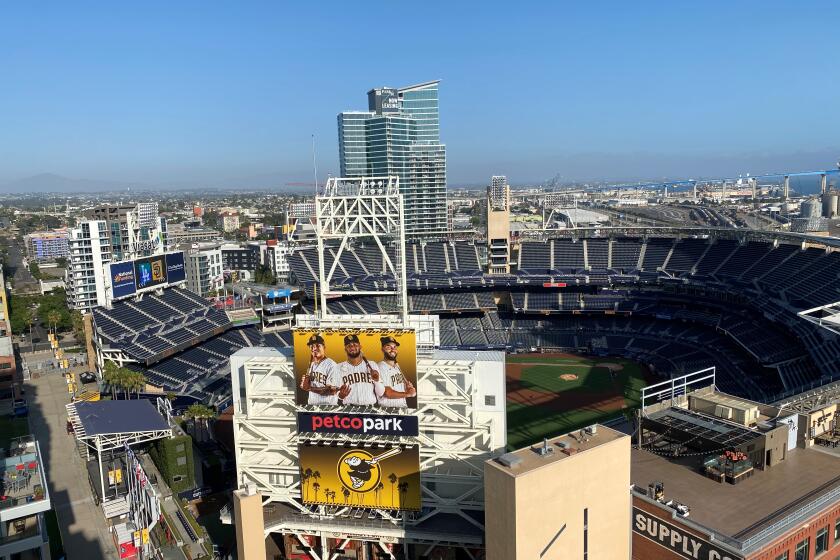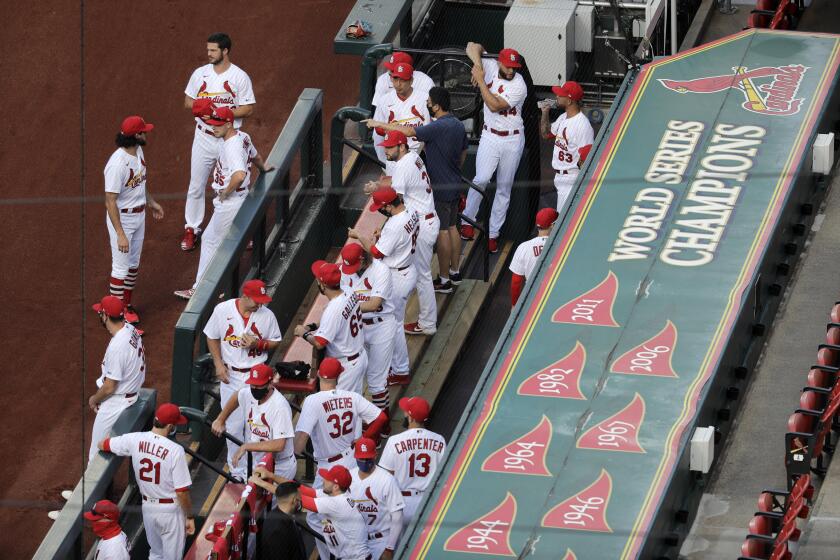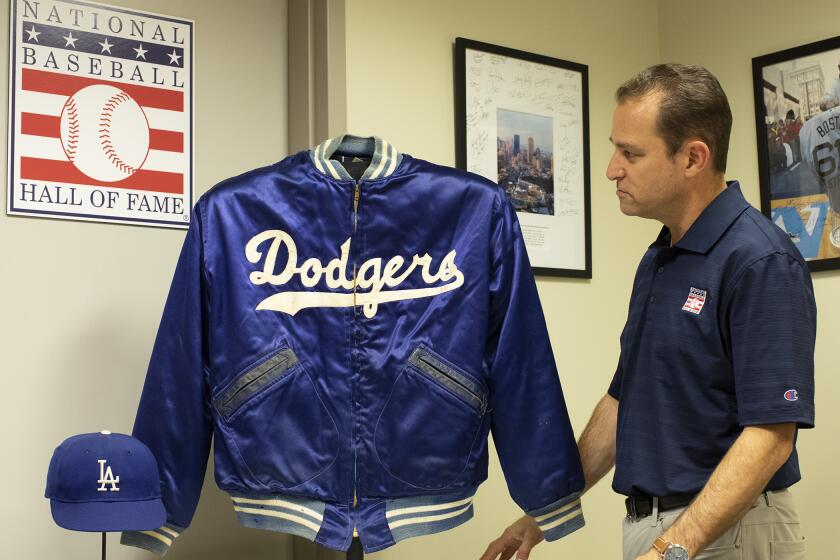Dodgers prospect Connor Joe eager to resume career after beating cancer
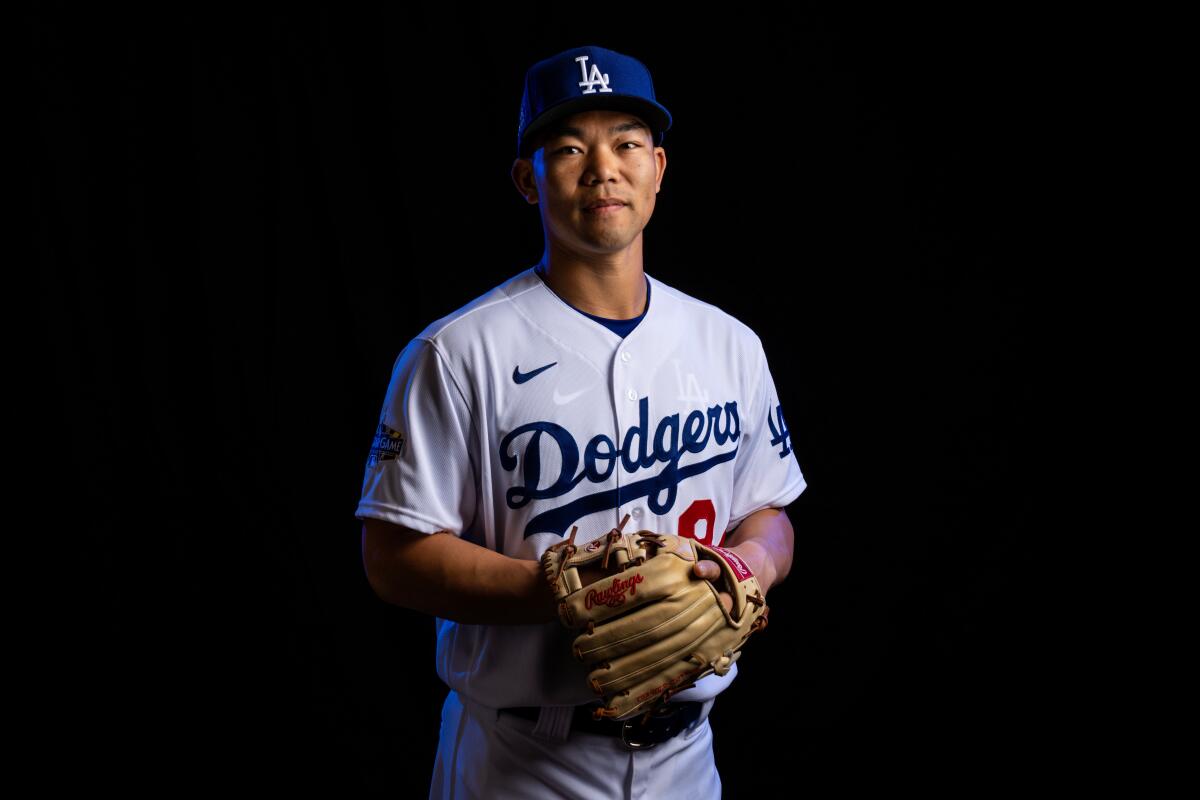
- Share via
Connor Joe went fishing last week near his home in Dana Point. Light water splashes could be heard on the other end of the phone while talking to him. He was relaxing.
Fishing was a hobby he picked up while undergoing chemotherapy over the previous three months. The hospital, fearing the novel coronavirus could spread and impact vulnerable patients, didn’t allow visitors in the infusion room. Alone, Joe spent hours watching YouTube videos of kayak fishing.
A year earlier, he was on the San Francisco Giants’ opening day roster, making his major league debut in his hometown of San Diego. He called it the best moment of his baseball career. This spring, he was battling testicular cancer.
“I never really thought it would happen to me,” Joe said. “It was a shock.”
Joe reported to spring training in February really believing he was in the best shape of his life.
The way his body was moving, the way he was swinging the bat, everything felt right. He was a 27-year-old professional athlete at his physical peak, poised to return to the majors after his 10-day tease in 2019. An opportunity seemed possible at some point in 2020 once the Dodgers invited him to major league camp. He was ecstatic.
Fans are banned from the ballparks this COVID-19 season, but the San Diego Marriott Gaslamp Quarter allows fan to watch, eat, drink and cheer from afar.
Then a doctor noticed something unusual during Joe’s routine spring training physical. The doctor thought it could be something benign, maybe a cyst, but recommended a follow-up just in case.
So, on Feb. 20, after working out at Camelback Ranch, Joe went to the Mayo Clinic in Scottsdale to hear if anything was wrong. The visit changed his life.
Joe’s mind spun. He hadn’t felt any symptoms. Nothing to indicate the disease was in his body. He drove the six hours from his Arizona home to Orange County and it didn’t sink in. He called his wife, Kylie, and his family to share the news. It was the longest drive of his life.
“We didn’t know how he could possibly have cancer,” Kylie Joe said. “That was going through our heads. Those first early days were the hardest because there was just so much uncertainty.”
Joe, who played in the minors for the Dodgers in 2018, underwent surgery to remove the tumor from his right testicle March 16, but scans later showed the cancer had metastasized in a lung. Then came another gut punch: the doctors recommended chemotherapy.
The news was initially kept to the doctors and the Dodgers’ front office until a plan to attack the cancer was devised. When word reached the clubhouse, he received an outpouring of support he didn’t expect.
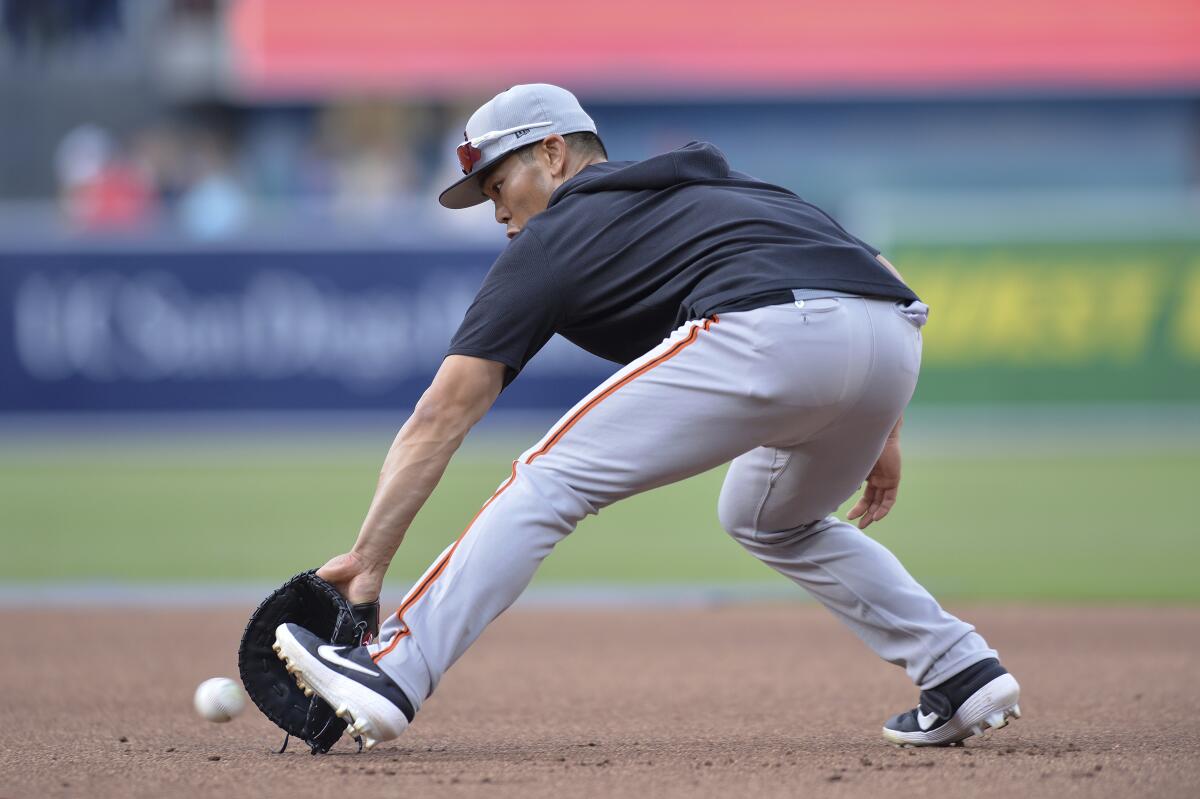
“I was in camp for like a week and a half,” said Joe, who returned to the Dodgers organization in April when the Giants designated him for assignment. “So to hear from those guys on the major league side was really special.”
Joe spent the next three months undergoing four rounds of treatment at UCLA Medical Center in Santa Monica. He went for five days, five to six hours at a time, and returned after a two-week break. He repeated the cycle four times.
The treatment left him at high-risk for COVID-19. He received injections to boost his white blood cells — vital in fighting infections — but admitted he didn’t feel safe in the hospital, where a mix of the coronavirus and susceptible patients made it a potential hot spot. It was another draining dimension in the fight.
He felt a little sluggish the first two weeks before the side effects worsened over the final two. He experienced nausea and fatigue that carried through the weekend. He’d go home, eat dinner and fall asleep on the couch before bed. But by the start of the following week he was back to normal, venturing outside whenever safely possible to bike, paddleboard, and fish — always with a mask on.
With the Miami Marlins, Philadelphia Phillies and the St. Louis Cardinals all postponing games after coronavirus infections, will MLB change tactics?
“Stuff like that helped me pass the time,” Joe said. “And being outside and in the sunlight was huge for my mental health.”
On July 20, he got the good news: He was cancer-free. Three days later, he watched the Dodgers beat the Giants on opening day from his couch with Kylie and their dog, a boxer named Ellie.
He had already started working out at his home gym and resumed baseball activities. He believes he can play this season, but the Dodgers don’t plan on bringing Joe into the fold yet, according president of baseball operations Andrew Friedman, because they’ve deemed it too risky.
So Joe will have to wait a little longer to resume his baseball career. Whenever that is, he’ll do it with a renewed perspective, an appreciation of every small victory and struggle, and a new pastime that helped him push through the biggest challenge of his life.
Short hops
The Dodgers optioned left-handed relief pitcher Adam Kolarek and utility infielder Zach McKinstry to trim their roster to 28. Kolarek and McKinstry will work out with other minor leaguers in the Dodgers’ 60-man pool.
More to Read
Are you a true-blue fan?
Get our Dodgers Dugout newsletter for insights, news and much more.
You may occasionally receive promotional content from the Los Angeles Times.

